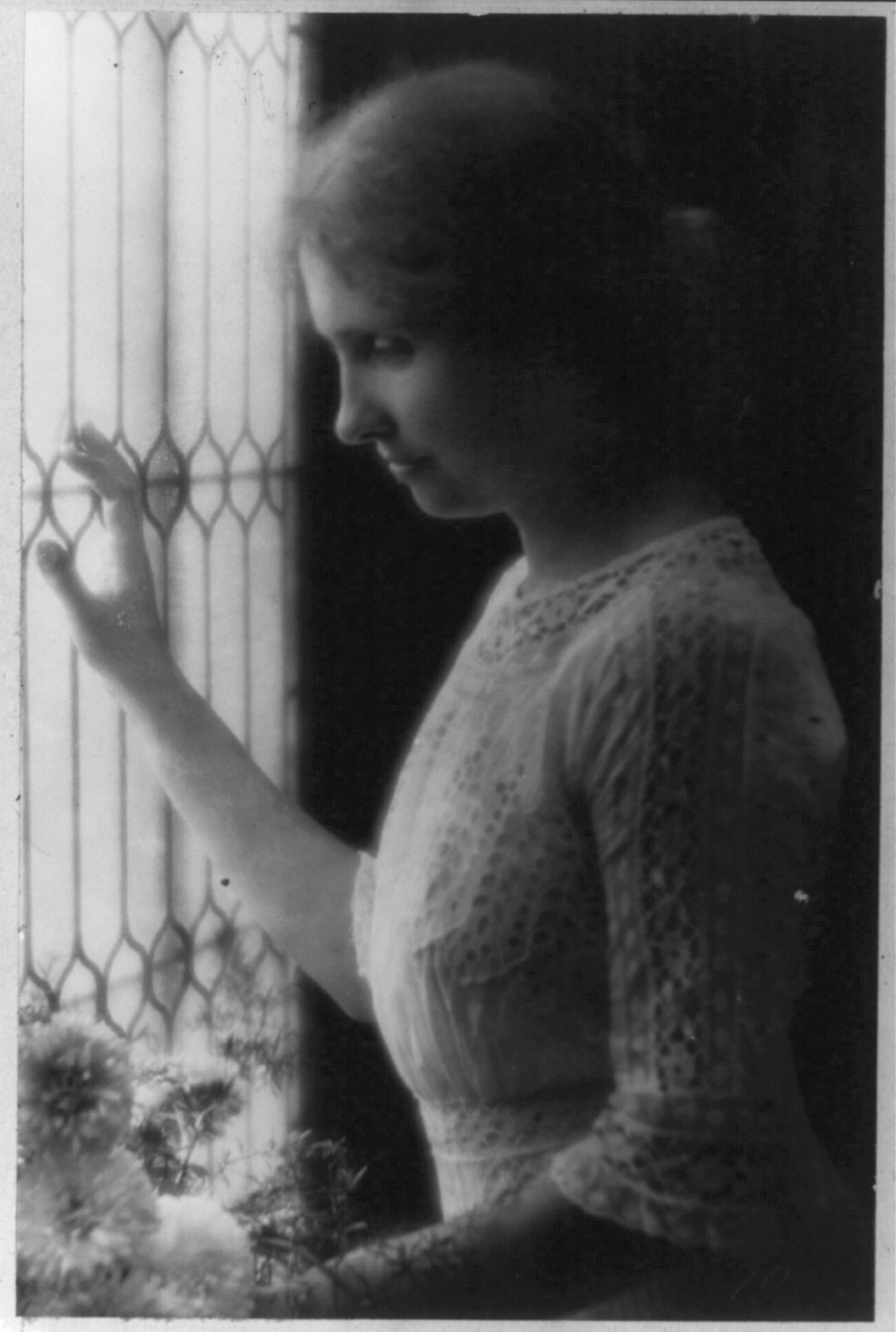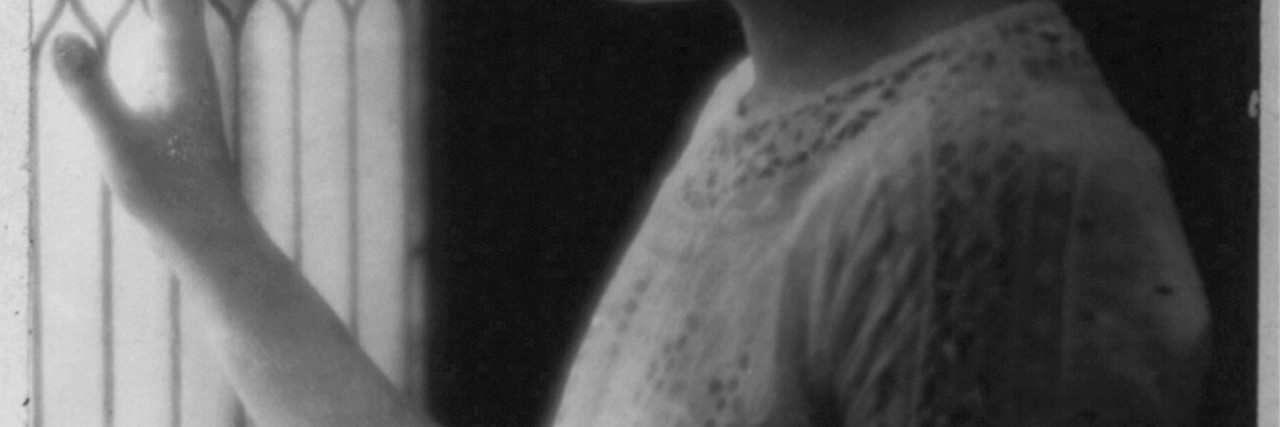June 27 has always been a personally significant day for me. It’s the anniversary of my first date with my husband. I guess it’s safe to say that date went fairly well because exactly three years later, he proposed. A year after that, June 27, 2002, we took the plunge and got married. Fast forward 18 years and we’ve had our very own Lifetime Movie version of marriage. Cancer, family drama, blindness and oh yeah, two toddlers. However, it wasn’t until after I lost my eyesight that I realized June 27 is significant for another reason — it also happens to be Helen Keller’s birthday. And when you’re a blind woman navigating vision loss, you need to stop and pay homage to the woman who paved the way.
No elementary school education would be complete without learning something about Helen Keller. She was born in Tuscumbia, Alabama, to Arthur Keller, a retired Army Captain, and Kate Adams. Helen was actually a healthy baby but contracted what doctors referred to as “acute congestion” (possibly from scarlet fever or meningitis) at 19 months old, essentially causing her to become both deaf and blind. My youngest daughter, Aoife, is 20 months old and I can’t imagine the fear Arthur and Kate must have felt as they watched their little girl make that transition, especially during the 1800’s.
Helen was a smart cookie. She tried her best to understand her surroundings by using her remaining senses of touch, smell and taste. However, in her autobiography Keller admitted she was pretty frustrated and perhaps understandably pissed off (my words, not hers) that she could not communicate with her family though traditional modes of conversational speech. By the age of 6, Helen resorted to a way many children express their anger; she began having tantrums, and by all historical accounts they were epic.
Her parents were beside themselves and knew they had to do something to help their daughter. They began to search for a teacher. Several candidates were hired, only to quit after receiving a dose of Helen’s raging behavior. Helen’s mother contacted Perkins School for the Blind Director Michael Anagnos, who sent Annie Sullivan, his prized graduate, to Tuscumbia in March of 1887.
Annie had a reputation for being a bit of a badass herself. Also visually impaired, Annie was sent to Perkins School for the Blind after the death of her mother and brother. She was a Perkins educated, strong-willed woman, dedicated to her profession. But little Ms. Keller wasn’t about to make Annie’s job easy for her – not by a long shot. While Helen eventually referred to her and Annie’s initial meeting as her “soul’s birthday” – ever grateful for the impact Sullivan had on her life – the relationship started out as more of a Ramsey Bolton versus John Snow battle, cirque Game of Thrones 2016.
Helen liked to fight, and the chick fought dirty. She hit Annie. Punched her. Kicked her. It’s even documented that Annie Sullivan lost a tooth as a result of Helen’s rages. And if the daily smack downs weren’t enough, Keller’s parents also interfered with Sullivan’s teaching methods.
Eventually, Annie convinced the Kellers she needed to be alone and independently control Helen. She moved into a small cottage on the family’s property. Through patience, perseverance and consistency, Annie finally developed a trusting relationship with Helen Keller that blossomed into a mutually respectful working relationship. Sullivan taught Helen “finger-spelling” – signing letters for words into the palm of her hand. Annie adapted some of the methodology she learned at her time with Perkins to incorporate Keller’s fascination with nature. The real breakthrough occurred when Helen learned the word “water” while Annie pumped it onto her hands from the well located just outside her home. From that point forward, Helen Keller was a force to be reckoned with in changing the world’s attitudes towards the disabled community, especially for deaf-blind people. Here are six amazing facts about Helen Keller that prove why she deserves our utmost R-E-S-P-E-C-T!
1. Helen Keller was brilliant. By age 10, Helen Keller had mastered braille and the manual alphabet. She even learned to use a typewriter. When she was 16, she spoke well enough to enroll in preparatory school. In 1904, Helen Keller became the first deaf-blind person to graduate from a college. But in typical Keller style, she didn’t just graduate, she finished cum laude from Radcliffe College.

2. Helen Keller had an impressive posse. Yeah, that’s right, I said “posse.” Helen rolled with the big boys of her generation. She was friends with everyone from Alexander Graham Bell to Lyndon Johnson. She also had a very close relationship with author Mark Twain, who actually coined the endearing term “miracle worker” for Helen’s teacher, Anne Sullivan.
3. Helen Keller was an “OG” feminist. Helen Keller didn’t just advocate for the disabled community; she took an active interest in a lot of issues, especially those relating to the woman’s suffrage movement. Keller had an opinion and she wasn’t afraid of sharing it on every subject from politics to birth control. She used her disability as a platform to explore these issues and proved to the world that she was an independent thinker.
4. Helen Keller was an accomplished writer. Helen wrote her first book, an autobiography about her life, when she was in college. She authored 12 books in total and countless articles reflecting her experiences as a deaf-blind woman and other causes she was passionate about. In the mid 1950’s, Helen’s writing inspired a television movie about her life which was then produced into a successful Broadway play. Eventually, “The Miracle Worker,” became an Oscar-winning film – landing both Patty Duke and Anne Bancroft with the coveted golden statues.
5. Helen Keller was a frequent flier. Between 1930-1950, Helen traveled to over 39 countries, changing perceptions about people with vision loss all over the world. Her mere presence was so impactful in some of these communities that blind schools and rehabilitation centers were established as a direct result of her visits.
6. Helen Keller was a passionate activist. Helen Keller lobbied on behalf of the American Federation for the Blind for 44 years. During World War II, she specifically sought to help blind veterans, orphans and refugees. She received several awards and citations for her dedicated activism from both the U.S. and abroad.
Since losing my eyesight four years ago, Helen Keller has become more than just an elementary school history lesson. She’s more than the infamous “Miracle Worker” scene of Patty Duke pushing on that water pump. Helen Keller is the woman who laid the foundation. She taught the world that the disabled community can do more than merely exist within society; we are capable of contributing to it. As someone who, like Helen, lost my sight from an unforeseen medical condition, I believe her birthday is something to be celebrated. Thank you, Helen Keller for being a strong, deaf-blind woman. Thank you for using your disability as a platform to educate the world. Thank you for paving the way for me to live successfully as a blind wife, mother, social worker and blogger! Like you, I will never lose sight of life, love and laughter. Happy Birthday, Helen Keller!
The Mighty is asking the following: Share a powerful moment you or a loved one has had with a public figure. Or, write a letter to a public figure who you feel has helped you or a loved one through his or her work. Check out our Submit a Story page for more about our submission guidelines.

